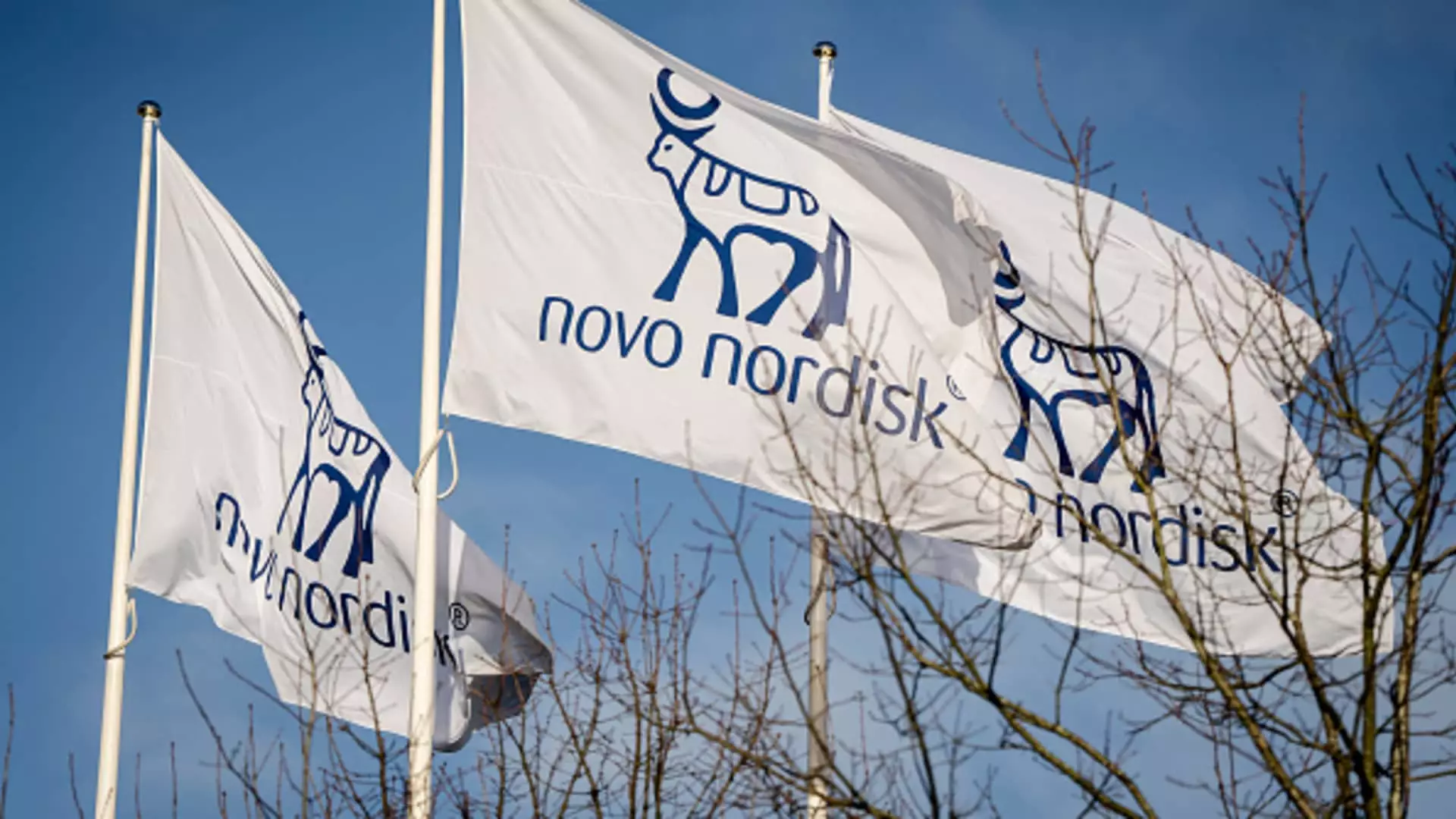Novo Nordisk recently unveiled promising results regarding its diabetes medication, Rybelsus, during the American College of Cardiology’s Annual Scientific Session. The findings indicate that this once-daily oral medication may significantly decrease the risk of cardiovascular-related events in patients who have both diabetes and established heart disease. It’s commendable that Rybelsus, which has previously been categorized solely as a diabetes treatment, now extends its reach by targeting cardiovascular health—a quintessential concern for diabetic patients. This shift could dramatically alter the landscape of diabetes management and cardiovascular care.
The reported 14% reduction in risks such as heart attacks, strokes, and cardiovascular-related mortality for patients taking Rybelsus compared to a placebo is a substantial advancement. Such an initiative reflects a deeper understanding of the connections between diabetes and heart diseases, emphasizing that a holistic approach to treatment can yield life-saving results. This synergy in treating multifaceted health issues is not just a win for Novo Nordisk; it sets a critical precedent for the pharmaceutical industry.
A New Era for Patient Choice
Traditionally, patients with diabetes seeking effective treatment had to wrestle with their options—many experiencing aversion to injections. The introduction of Rybelsus, an oral alternative to the injectable medication Ozempic, caters to patients who may feel intimidated by needles or simply prefer the convenience and comfort of a tablet. The acknowledgment of patient preference in treatment plans signifies a shift towards patient-centered care, making it not only a medical advancement but a significant step in promoting autonomy and respect for patient choices.
During an interview, Stephen Gough, Novo Nordisk’s global chief medical officer, articulated the commitment to providing accessible treatment options. This willingness to adapt medications to fit patients’ lifestyles offers hope not just for better compliance but potentially better health outcomes as well. It raises a pertinent question: if patients are less anxious about how they receive their treatment, could this lead to overall improved adherence to their healthcare regime?
Impressive Trial Results with Real-World Implications
The clinical trial that assessed Rybelsus involved over 9,600 participants aged 50 and above, receiving either the medication or a placebo in conjunction with their existing treatment. The outcomes demonstrate promising results not just in efficacy but in scalability; if Rybelsus can cater to a diverse demographic with such consistent results, it could become a cornerstone in diabetes treatment protocols worldwide.
Among the reported benefits was a notable 26% reduction in non-fatal heart attacks, along with other significant cardiovascular advantages. These findings echo earlier results from injectable GLP-1s, establishing credibility and giving much-needed reassurance to both healthcare providers and patients. The robust data collected from this trial underlines the importance of rigorous scientific validation in formulating effective treatments—something that must not be overlooked amidst the buzz surrounding new medications.
While some reservations linger about the gastrointestinal side effects associated with Rybelsus—like nausea and constipation—the fact that these issues rarely deterred patients from continuing the medication is an encouraging sign. It may indicate that the cardiovascular benefits outweigh discomfort, supporting the notion that sometimes the means can justify the ends in medical intervention.
A Competitive Market Landscape
The market for diabetes and weight loss medications is fiercely competitive, with other companies, such as Eli Lilly, striving to pioneer oral formulations of GLP-1s. This bustling landscape sets the stage for increased innovation and research, pushing companies to prioritize not just efficacy but also the informative aspect of user experience. As more oral medications emerge, pharmacies may soon become inundated with options tailored to patient needs.
While the excitement around Rybelsus is palpable, it’s crucial to view this development within the broader context of healthcare reforms continually advocating for more comprehensive, patient-friendly treatment options. This evolution is not merely a contest of who can create the most effective drug, but about how access to those drugs can be made equitable—a goal that should resonate deeply with all stakeholders involved in healthcare.
The Future of Cardiovascular Care in Diabetes Management
As health professionals continue to research and innovate therapies like Rybelsus, the connections between diabetes management and cardiovascular care will become increasingly pronounced. The implications of Rybelsus may not only pave the way for more advanced treatment options but could also reshape the narrative surrounding chronic diseases that dwarf patient quality of life.
This reflects a center-right liberal perspective on healthcare—acknowledging the strengths of private innovation while advocating for patient rights and informed choices. In an era where patient-focused care should dictate the direction of healthcare policies, Novo Nordisk’s Rybelsus emerges not merely as a treatment but as a beacon of what can be achieved when science aligns with patient priorities.

